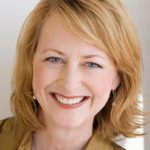 I am a New Yorker (with a Southern accent, but nonetheless a New Yorker). Like many of us, I witnessed the planes hit the World Trade Center towers on 9/11; I lived through the anthrax scare; and I now run a church that is eight blocks from the recent Chelsea bombing. The threat of violence has become a daily phenomenon for us. So have the ubiquitous signs: “See something? Say something.”
I am a New Yorker (with a Southern accent, but nonetheless a New Yorker). Like many of us, I witnessed the planes hit the World Trade Center towers on 9/11; I lived through the anthrax scare; and I now run a church that is eight blocks from the recent Chelsea bombing. The threat of violence has become a daily phenomenon for us. So have the ubiquitous signs: “See something? Say something.”
No matter where you live in this country, we all know this phrase coined by the Department of Homeland Security (DHS). It is meant to encourage community support in identifying suspicious actions or items. DHS can’t protect us by itself. This country is too big. There’s too much to do, too much to monitor. It’s going to take all of us — working together — to ensure the safety and well-being of our communities (emphasis on “our”).
The phrase plays on the fact that we tend to protect our own. If it’s in our neighborhood, if it’s involving our own, it’s in our self-interest to say something. Sadly, the opposite is also true: If it’s not in our neighborhood, if it’s not involving our own, then we’re not as vigilant.
Let me give you an example. In fact, let me give you 12:
Amadou Diallo
Manuel Loggins Jr.
Ronald Madison
Kendra James
Sean Bell
Eric Garner
Michael Brown
Alton Sterling
Akiel Denkins
Gregory Gunn
Terence Crutcher
Keith Lamont Scott
These are just 12 of the countless other black men and women killed by police. Now, you can argue black lives matter versus blue lives matter until the cows come home, but the facts don’t lie.
Our black and brown brothers and sisters live in a world that is starkly different than the one our white brothers and sisters inhabit. It is a world of harsh economic disparity, a world of casual violence, a world where mothers struggle to raise their children and wonder how long they will live.
Yet, the white community is silent. Even in the face of egregious injustice, we refuse to “say something.” The unspoken message is: it’s not our neighborhood — it doesn’t involve one of our own.
Here’s a tragic irony. Recently, scientists have determined that humanity is 99.99 percent genetically the same. That means no matter what our race, gender, ethnicity, religion, sexual orientation, or age, there is only a .01 percent genetic difference in all of us. That also means that the violence, wars, prejudice, and hatred in this world are framed around that .01 percent difference.
Still we can’t let go. I am reminded of the Apostle Paul’s warning to the churches in Galatia, churches that were in deep dissension in which their very survival was threatened by people tearing each other apart: “If you bite and devour one another, take care that you are not consumed yourself” (Galatians 5:15).
If we see something, we must say something. And that includes seeing injustice, as well as truly seeing each other. As President Barak Obama offered in his speech at the recent opening of the African American Museum in Washington: “Hopefully, this museum can help us talk to each other, and more importantly listen to each other, and most importantly see each other.”
Jesus of Nazareth is one of the greatest examples of how we can transform this belief into action. His entire life was dedicated to this very philosophy: if you see something, say something. Jesus saw commercial stealing and turned over the money tables in the temple. He saw hypocrisy and called out religious leaders to answer. He saw inequities and injustice for the poor and attacked the power structure on their behalf. Most importantly, he did this for all people: men, women, laborers, tax collectors, children, Roman centurions, prostitutes, fishermen, farmers, and those who were ill, possessed, and dying. Not just “his own.”
Brothers and sisters, like Christ the world is our neighborhood. Humanity — every race, creed and religion — is our own. Similar to the fight against terrorism, the fight against racism, prejudice and hatred is just too big for one person or organization. There’s too much to do, too much to monitor.
It’s going take all of us — working together — to ensure the well-being of our global neighborhood. It’s going to take all of us “seeing something and saying something” to ensure the safety of all our own. Dr. Martin Luther King Jr. perhaps put it best when he observed, “We may have all come in different ships, but we’re in the same boat now.”
